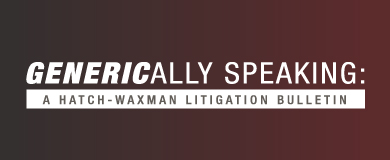- Acumen Powered by Robins Kaplan LLP®
- Affirmative Recovery
- American Indian Law and Policy
- Antitrust and Trade Regulation
- Appellate Advocacy and Guidance
- Business Litigation
- Civil Rights and Police Misconduct
- Class Action Litigation
- Commercial/Project Finance and Real Estate
- Corporate Governance and Special Situations
- Corporate Restructuring and Bankruptcy
- Domestic and International Arbitration
- Health Care Litigation
- Insurance and Catastrophic Loss
- Intellectual Property and Technology Litigation
- Mass Tort Attorneys
- Medical Malpractice Attorneys
- Personal Injury Attorneys
- Telecommunications Litigation and Arbitration
- Wealth Planning, Administration, and Disputes
Acumen Powered by Robins Kaplan LLP®
Ediscovery, Applied Science and Economics, and Litigation Support Solutions
-
June 1, 2022Chambers USA Recognizes Five Robins Kaplan Practice Groups And 17 Lawyers In 2022 Guide
-
June 1, 2022Seasoned Attorney Joins Firm’s Business Litigation Group
-
May 26, 2022Shira Shapiro Named Woman of Promise By The Pearl Society
-
June 3, 202219th Annual Advanced Insurance Law
-
June 9, 2022Building Your Brand: Perspectives and Insights from a Diverse Bar
-
June 10, 2022LGBTQ Legal Services: Transgender Name Change Clinic
-
May 24, 2022Briefly: Seeking Fees and Costs While on Appeal
-
May 19, 202211th Circ. Ban On Service Awards May Inhibit Class Actions
-
May 13, 2022Trademark Applications and the Murky Waters of Subject Matter Jurisdiction
-
June 2, 2022Sandberg Stepping Down as Meta COO After 14 Years
-
June 1, 2022Markets Revert to Recent Form as Pessimism Takes Hold
-
May 27, 2022Unexpectedly Strong Retail Sales Pull Markets Back from the Brink
Find additional firm contact information for press inquiries.
Find resources to help navigate legal and business complexities.
G.D. Searle LLC v. Lupin Pharms, Inc.
Finding the reissued patent invalid under 35 U.S.C. § 251 and invalid based on obviousness-type double patenting.
Spring 2014

Case Name: G.D. Searle LLC v. Lupin Pharms, Inc., Civ. No. 13-cv-121 (E.D. Va. Mar. 12, 2014) (Wright Allen, J.)
Drug Product and Patent(s)-in-Suit: Celebrex® (celecoxib); U.S. Reissue Patent No. 44,048 (“the ’048 patent”)
Nature of the Case and Issue(s) Presented: The ’048 patent claims the treatment of acute pain and symptoms of arthritis, osteoarthritis, rheumatoid arthritis, juvenile rheumatoid arthritis, ankylosing spondylitis or spondyloarthropathy, and primary dysmenorrhea or menstrual cramps. The ’048 patent is a reissue of U.S. Patent No. 5,760,068 (“the ’068 patent”). The Federal Circuit held that the ’068 patent was invalid under the doctrine of obviousness-type double patenting. The Federal Circuit held that since the ’068 patent was a continuation-in-part of the parent patent, as opposed to a divisional application, the ’068 patent was not protected by the safe-harbor provisions of 35 U.S.C. § 121, and thus invalid. Following the ruling, Pfizer asked the U.S. Patent and Trademark Office (“USPTO”) to reissue the ’068 patent as a divisional to correct the deficiencies identified by the Federal Circuit. The USPTO initially rejected the claim because of the patentee’s failure to timely file a divisional application prior to issuance of the original patent. Pfizer then asserted that reissue was proper because the ’068 patent contained indefinite claim terms. Based on Pfizer’s assertion, the USPTO issued the ’048 patent. That same day, plaintiffs filed suit against defendants alleging infringement of the ’048 patent stemming from the submission of defendants’ ANDAs with the FDA.
Defendants brought motions for summary judgment of invalidity for failure to meet the reissue requirements and for obviousness-type double patenting. Defendants asserted four arguments as to why the reissue was invalid: (i) new matter was added; (ii) a claim was broadened more than two years after the patent issued; (iii) failure to file a divisional is not correctable via reissue; and (iv) intentional acts are not correctable via reissue. The court found the reissued patent invalid. While the claims did not add new matter and were not broadened, the court determined that the patentee failed to file a divisional and that act was intentional. Since the court determined that the patent was a divisional, it was not protected by the safe harbor provision and thus, invalid under the doctrine of obviousness-type double patenting.
Why Defendants Prevailed: Defendants prevailed because the court determined that the question was not whether reissue is permitted on another basis, but rather whether the reissue ’048 patent could have been filed as a divisional. Thus, Pfizer’s other asserted errors requiring correction was insufficient to avoid invalidity. The designation of the reissue application as a divisional, instead of a continuation-in-part, is not a correctable error under 35 U.S.C. § 251 and could not be classified as a narrowing change to the patent claims. The court found that the patentee made an intentional decision to file a continuation-in-part and gain the benefit of an extended period of exclusivity as to celecoxib. This decision resulted in no protection under 35 U.S.C. § 121 for obviousness-type double patenting. Therefore, the court determined that the ’048 patent was invalid for obviousness-type double patenting under the same rationale that the Federal Circuit applied to the original ’068 patent.
Related Professionals
Related Publications
Related News
If you are interested in having us represent you, you should call us so we can determine whether the matter is one for which we are willing or able to accept professional responsibility. We will not make this determination by e-mail communication. The telephone numbers and addresses for our offices are listed on this page. We reserve the right to decline any representation. We may be required to decline representation if it would create a conflict of interest with our other clients.
By accepting these terms, you are confirming that you have read and understood this important notice.
